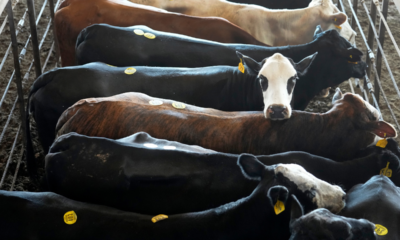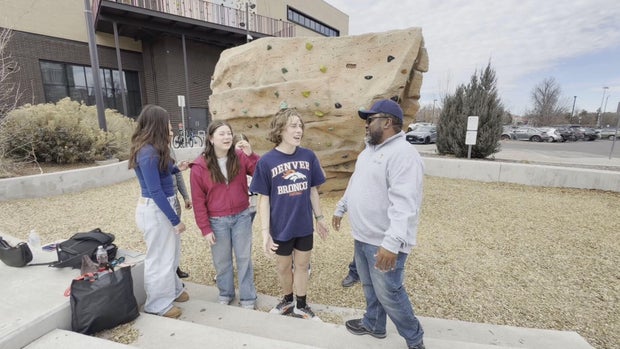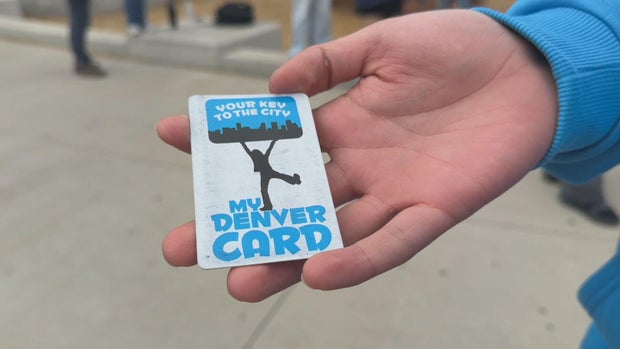Denver, CO
Coffman: Aurora and Denver have vastly different approaches to homelessness — work first and housing first

Homelessness and its effects have become some of the most critical issues of our time across Colorado and much of the nation. After all my years in American government, I have learned that tough challenges like these require innovative thought, persistence, and the need for proven, long-term solutions.
While the efforts to tackle these issues in the city and county of Denver tend to dominate headlines, I believe it is important to highlight and clarify the work we are doing in Aurora and provide a reminder that Aurora’s approach is distinctly different from Denver’s approach.
The first part of Aurora’s new strategy involves the purchase and renovation of the Crowne Plaza Hotel and Convention Center near Chambers Road and Interstate 70 in Aurora which, when renovated and updated, will serve as a regional navigation and resource center to help individuals experiencing homelessness.
The money necessary for this project was made possible by the American Recovery Plan Act (ARPA), which was passed by Congress and signed into law by the president during the height of the pandemic in 2021.
The city of Aurora used some of its own federal ARPA dollars and received additional ARPA funds from the state of Colorado, Douglas County, Arapahoe County and Adams County to buy and renovate the facility in exchange for agreeing to take care of many of those experiencing homelessness from the entire Denver metro area.
The program component of the Aurora Regional Navigation Campus is being brought forward by Mayor Pro Tem Dustin Zvonek. His proposal will convert the facility into three distinct tiers culminating in a “work first” approach. In the third tier, the 255 soon-to-be former hotel rooms will only be available to individuals who are participating in a work training program, who have completed their work training and are actively looking for employment, or who are working but still in need of some services.
This contrasts with Denver’s “Housing First” strategy that simply gives hotel rooms or apartments to individuals experiencing homelessness with absolutely no requirements other than the belief that once they have stable housing, they will be inclined to voluntarily change their behavior and take advantage of the services offered to them.
We believe that the “work first” approach is both fair to the taxpayers, who get up every morning to go to work and who share in the adult responsibilities of life, and ultimately compassionate to those experiencing homelessness.
Unsheltered homelessness is less a crisis of housing affordability and more a crisis of addiction and mental illness. The city of Aurora has outreach teams that connect people who live on the streets week after week with offers of safe places to stay and the services necessary to help them get back on their feet, but they rarely take us up on them. Even when their encampments are being abated, many will still refuse help. If given the choice, they will choose to remain on the streets.
To help them, we must remove that choice. Our current camping ban merely states that once an encampment receives a 72-hour notice it will be abated and that so long as the individuals experiencing unsheltered homelessness agree to move, there will be no penalties for having violated our camping ban.
A new camping ban ordinance is being proposed by Council Member Steve Sundberg that will dramatically change the enforcement of our existing ban. Its focus will be the I-225 corridor in Aurora, the center of gravity for much of our homeless population, but it is written to expand, as necessary, to other parts of our city. Instead of a 72-hour notice, there will be no notice, and violators will be ticketed and given a court date for a trespassing offense. Failure to appear will cause a warrant to be issued for their arrest.
A companion proposal, by Council Member Curtis Gardner, will create a specialized “problem solving court” for individuals experiencing homelessness who have committed low-level offenses such as trespassing. The goal is not to punish them but to get them the treatment they need to stay off the streets. The new court will be called the H.E.A.R.T. (Housing, Employment, Assistance, Recovery, Teamwork) Court where homeless offenders will be given the opportunity to commit to a yearlong probation with agreed-upon requirements such as participating in addiction recovery, mental health care and job training to help them get on a path to being sober, employed and staying housed. If they meet all the requirements of their probation, their charges will be dropped.
Right now, Denver’s “Housing First” approach is the only one recognized by the federal government, while Aurora’s “work first” one is not. Having two cities, side by side, could be the test case that our nation needs to determine the legitimacy of both approaches.
Mike Coffman is the mayor of Aurora.
Sign up for Sound Off to get a weekly roundup of our columns, editorials and more.
To send a letter to the editor about this article, submit online or check out our guidelines for how to submit by email or mail.

Denver, CO
Richard Jackson Obituary | The Denver Post

Richard Jackson
OBITUARY
Richard E. Jackson, affectionately called “Jackson”, was beloved by his family, friends and colleagues. He passed peacefully surrounded by his wife and children. He was receiving exceptional medical care at City Park Healthcare and Rehabilitation Center at the time of his death. A devout Catholic, he received his Last Rights from Fr. John Ludanha of Blessed Sacrament Church and School.
He earned a Bachelor’s degree in Economics from Gannon University and a Master’s degree in Education from the George Washington University. For over 30 years, he was employed by the federal government, mostly as an analyst for the Social Security Administration (SSA). Other positions he held were: Beneficiary Services Specialist, Division of Medicare, Health Care Financing Administration; Public Affairs Specialist for SSA; and Management Analyst SSA Office of Management and Budget. After he retired, he was a consultant to the State of Colorado Center for Medicare and Medicaid Services.
Jackson was a devoted father, step-father and foster father. He would take over the kitchen and cook spaghetti and meatballs, a family favorite, and then transport children to gymnastics practice and friends’ houses. He had a remarkable sense of humor, bringing joy and laughter to his home. He adored his wife and would leave her weekly love notes in drawers around the house. Exercising at the Denver Athletic Club, taking walks with his wife, and reading the New York Times were three of his favorite activities. He was born in Westfield, New York. His parents were Canadian immigrants. He was the youngest of eight children.
He is survived by his wife, Joycee Kennedy; his children – Kimberly Jackson (Mike Estes), Dawn Jennings (Ed Jennings) and Kevin Jackson; his stepchildren – Cary Kennedy (Saurabh Mangalik) and Jody Kennedy (Christopher Thompson); his grandchildren – Elizabeth, Chase and Drew; his step grandchildren – Kadin, Kyra, Bryce and Sena; and his first wife Madonna Smyth.
Services will be held at Blessed Sacrament Church – the time and day to be announced.
Denver, CO
Students push for statewide

Students from across the Denver metro are heading to the state Capitol to push for free after-school opportunities statewide.
The proposal would create a “My Colorado Card” program, giving students in sixth through 12th grades access to cultural, arts, recreational and extracurricular activities throughout the state.
For students like Itzael Garcia, Denver’s existing “My Denver Card” made a life-changing difference. He said having access to his local recreation center helped keep him safe.
“We had a couple stray bullets go through our living room window, we had people get shot in front of our house, different things like that,” Garcia said. “Over the summer, being able to go to the public pool, it provided a space for us to all come together. In a way, it acted as a protective factor.”
The My Denver Card provides youth ages 5 to 18 with free access to the zoo, museums and recreation centers. For some, like Garcia, it has served as a safe haven.
That impact is why students involved with the nonprofit FaithBridge helped craft legislation to expand a similar pilot program to communities outside Denver.
“We really just thought that inequity and really distinct opportunity deserts for students was really important for us to correct,” said Mai Travi a junior at Thomas Jefferson High School. Another student echoed that sentiment.
“We have a lot of students in the program that come from Aurora Public Schools, and they don’t have access to the same cultural facilities that we have living here; opportunities that really define our childhood experiences,” said Jack Baker, also a junior at Thomas Jefferson High School.
Vernon Jones, director of the nonprofit FaithBridge, said organizers are still working out logistics but hope to partner with counties across Colorado.
“This is a strategy to work for all of Colorado,” he said.
Denver school board member Marlene De La Rosa said the My Denver Card program has been impactful since its launch in 2013.
“For students that are on free and reduced lunch, the ‘My Denver Card’ can help scholarship some of their fees to participate in the youth sports at the recreation centers,” De La Rosa said.
Last year, 45,000 Denver youth had a card, accounting for 450,000 visits to recreation centers, outdoor pools and cultural facilities, she said.
“I think it is very beneficial,” De La Rosa said.
The Denver program is funded by city tax dollars approved by voters in 2012. The proposed statewide pilot would instead rely on donations and grants.
The bill has cleared its first committee but still needs approval from the full House and Senate.
Denver, CO
Tempers flare during another tightly contested matchup between Denver Nuggets, Oklahoma City Thunder

-

 World3 days ago
World3 days agoExclusive: DeepSeek withholds latest AI model from US chipmakers including Nvidia, sources say
-

 Massachusetts4 days ago
Massachusetts4 days agoMother and daughter injured in Taunton house explosion
-

 Montana1 week ago
Montana1 week ago2026 MHSA Montana Wrestling State Championship Brackets And Results – FloWrestling
-

 Denver, CO4 days ago
Denver, CO4 days ago10 acres charred, 5 injured in Thornton grass fire, evacuation orders lifted
-

 Louisiana6 days ago
Louisiana6 days agoWildfire near Gum Swamp Road in Livingston Parish now under control; more than 200 acres burned
-

 Technology1 week ago
Technology1 week agoYouTube TV billing scam emails are hitting inboxes
-

 Technology1 week ago
Technology1 week agoStellantis is in a crisis of its own making
-

 Politics1 week ago
Politics1 week agoOpenAI didn’t contact police despite employees flagging mass shooter’s concerning chatbot interactions: REPORT























